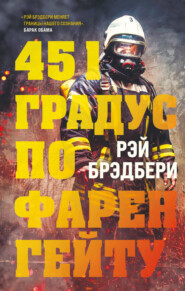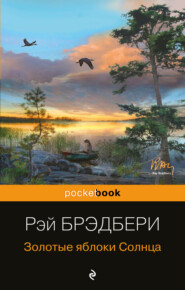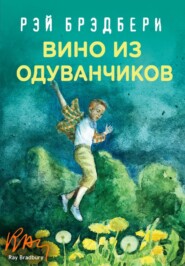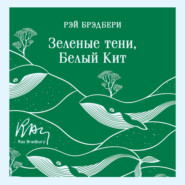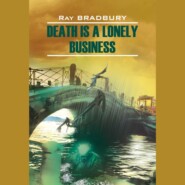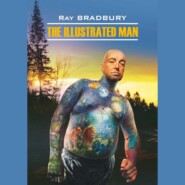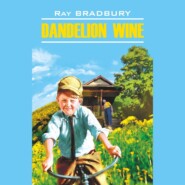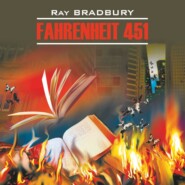По всем вопросам обращайтесь на: info@litportal.ru
(©) 2003-2024.
✖
I Sing the Body Electric
Автор
Год написания книги
2018
Настройки чтения
Размер шрифта
Высота строк
Поля
And we all looked close at the fresh white egg lying on a small bed of aspirin-bottle cotton.
“Hey,” said Skip.
“Oh, yeah,” I whispered. “Hey.”
For there in the center of the egg, as if cracked, bumped and formed by mysterious nature, was the skull and horns of a longhorn steer.
It was as fine and beautiful as if a jewelsmith had worked the egg some magic way to raise the calcium in obedient ridges to shape that skull and those prodigious horns. It was, therefore, an egg any boy would have proudly worn on a string about his neck or carried to school for friends to gasp over and appraise.
“This egg,” said our landlady, “was laid, with this design on it, exactly three days ago.”
Our hearts beat once or twice. We opened our mouths to speak. “It—”
She shut the box. Which shut our mouths. She took a deep breath, half closed her eyes, then opened the lid of the second box.
Skip cried, “I bet I know what’s—”
His guess would have been right.
In the second box, revealed, lay a second fat white egg on cotton.
“There,” said the lady who owned the motel and the chicken ranch way out in the middle of the land under a sky that went forever and fell over the horizon into more land that went on forever and more sky over that.
We all bent forward, squinting.
For there were words written on this egg in white calcium outline, as if the nervous system of the chicken, moved by strange night talks that only it could hear, had lettered the shell in painful half-neat inscriptions.
And the words we saw upon the egg were these:
REST IN PEACE. PROSPERITY IS NEAR.
And suddenly it was very quiet.
We had begun to ask questions about that first egg. Our mouths had jumped wide to ask: How could a chicken, in its small insides, make marks on shells? Was the hen’s wristwatch machinery tampered with by outside influences? Had God used that small and simple beast as a Ouija board on which to spell out shapes, forms, remonstrances, unveilings?
But now, with the second egg before us, our mouths stayed numbly shut.
REST IN PEACE. PROSPERITY IS NEAR.
Dad could not take his eyes from that egg.
Nor could any of us.
Our lips moved at last, saying the words soundlessly.
Dad looked up, once, at our landlady. She gazed back at him with a gaze that was as calm, steady, and honest as the plains were long, hot, empty, and dry. The light of fifty years withered and bloomed there. She neither complained nor explained. She had found an egg beneath a hen. Here the egg was. Look at it, her face said. Read the words. Then … please … read them again.
We inhaled and exhaled.
Dad turned slowly at last and walked away. At the screen door he looked back and his eyes were blinking rapidly. He did not put his hand up to his eyes, but they were wet and bright and nervous. Then he went out the door and down the steps and between the old bungalows, his hands deep in his pockets.
My brother and I were still staring at that egg, when the landlady closed the lid, carefully, rose, and went to the door. We followed, silent.
Outside, we found Dad standing in the last of the sun and the first of the moon by the wire fence. We all looked over at ten thousand chickens veering this way and that in tides, suddenly panicked by wind or startled by cloud shadows or dogs barking off on the prairie, or a lone car moving on the hot-tar road.
“There,” said our landlady. “There she is.”
She pointed at the sea of rambling fowl.
We saw thousands of chickens hustling, heard thousands of bird voices suddenly raised, suddenly dying away.
“There’s my pet, there’s my precious. See?”
She held her hand steady, moving it slowly to point to one particular hen among the ten thousand. And somewhere in all the flurry …
“Isn’t she grand?” said our landlady.
I looked, I stood on tiptoe. I squinted. I stared wildly.
“There! I think—!” cried my brother.
“The white one.” supplied our landlady, “with ginger flecks.”
I looked at her. Her face was very serene. She knew her hen. She knew the look of her love. Even if we could not find and see, the hen was there, like the world and the sky, a small fact in much that was large.
“There.” said my brother, and stopped, confused. “No, there. No, wait … over there!”
“Yeah,” I said. “I see him!”
“Her, you dimwit!”
“Her!” I said.
And for a brief moment I thought I did see one chicken among many, one grand bird whiter than the rest, plumper than the rest, happier than the rest, faster, more frolicsome and somehow strutting proud. It was as if the sea of creatures parted before our Bible gaze to show us, alone among island shadows of moon on warm grass, a single bird transfixed for an instant before a final dog bark and a rifle shot from a passing car exhaust panicked and scattered the fowls. The hen was gone.
“You saw?” asked the landlady, holding to the wire fence, searching for her love lost in the rivering hens.
“Yes.” I could not see my father’s face, whether it was serious or if he gave a dry smile to himself. “I saw.”
He and mother walked back to our bungalow.
But the landlady and Skip and I stayed on at the fence not saying anything, not even pointing anymore, for at least another ten minutes.
Then it was time for bed.
I lay there wide awake with Skip. For I remembered all the other nights when Dad and Mom talked and we liked to listen to them talk about grown-up things and grown-up places. Mother asking concerned and Dad answering final and very sure and calm and quiet. Pot of Gold, End of Rainbow. I didn’t believe in that. Land of Milk and Honey. I didn’t believe in that. We had traveled far and seen too much for me to believe … but …
Someday My Ship Will Come in …






